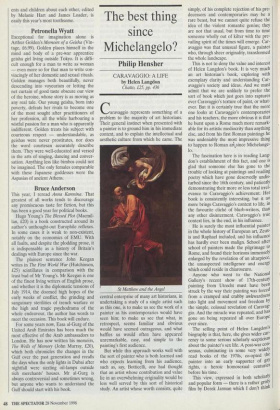Bruce Anderson
This year, I reread Anna Karenina. That greatest of all works tends to discourage any promiscuous taste for fiction, but this has been a good year for political books.
Hugo Young's The Blessed Plot (Macmil- lan, £20) is a book constructed around its author's unthought-out Europhile reflexes. In some cases it is weak to non-existent, notably on the economics of EMU. With all faults, and despite the plodding prose, it is indispensable as a history of Britain's dealings with Europe since the war.
The plainest sentence John Keegan writes in The First World War (Hutchinson, £25) scintillates in comparison with the least bad of Mr Young's. Mr Keegan is one of the finest living writers of English prose, and whether it is the diplomatic tensions of July 1914, the doomed high hopes of the early weeks of conflict, the grinding and sanguinary sterilities of trench warfare or the high and tragic psychodrama of the whole endeavour, the author has words to meet the occasion. This book will endure.
For some years now, Easa al-Gurg of the United Arab Emirates has been much the most effective of the Arab ambassadors to London. He has now written his memoirs, The Wells of Memory (John Murray, £20), which both chronicles the changes in the Gulf over the past generation and recalls the days when the only lights in Dubai after nightfall were sizzling oil-lamps outside rich merchants' houses. Mr al-Gurg is always controversial and sometimes wrong, but anyone who wants to understand the Gulf should start with his book.


























































































 Previous page
Previous page